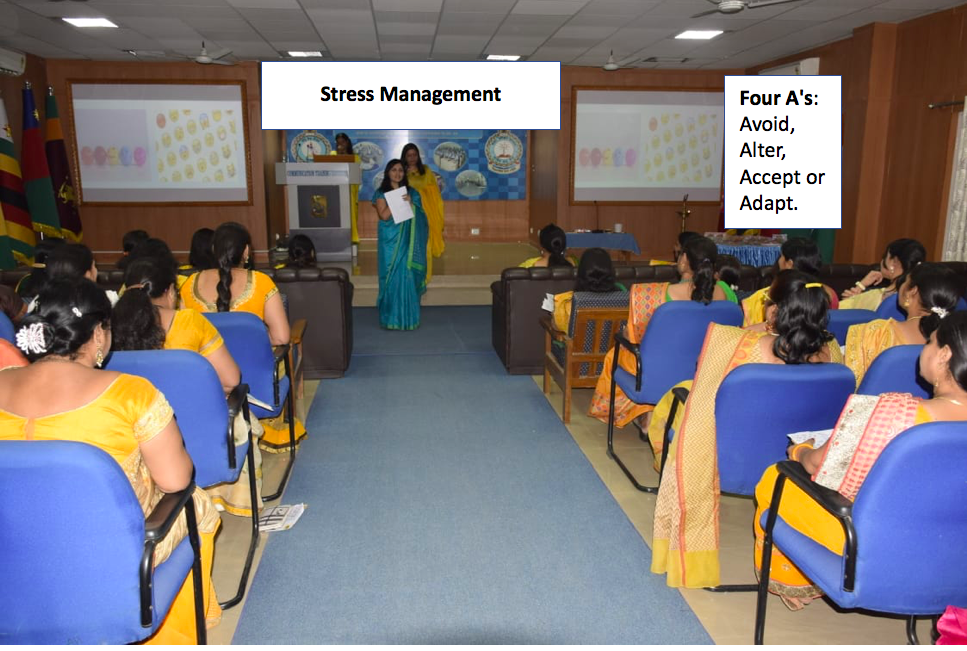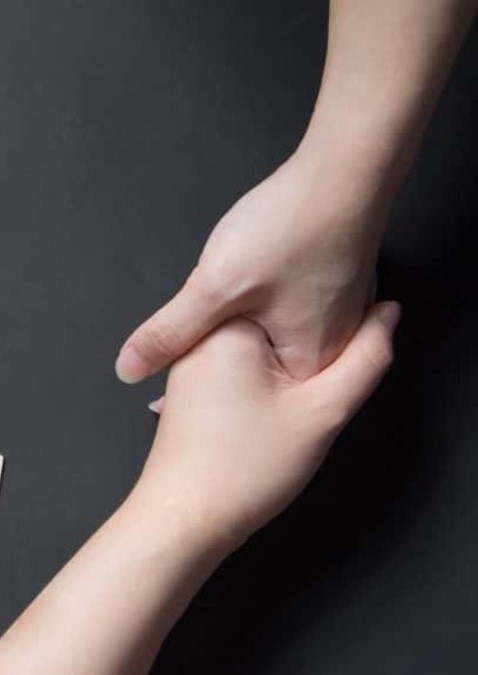Stress, Depression, Mental health… are widely spoken these days. The awareness regarding mental health has increased many folds lately, and especially during the pandemic, everybody is talking about it. Indeed, it’s a good sign to hear people talk about these issues openly because there were times when mention about them was a taboo. In spite of all this, for Psychologists and mental health professionals, it is still a challenge as more and more people are unable to cope with the life stressors and many are slipping into severe mental disorders. Medical research estimates as much as 90 percent of illness and disease is stress-related and stress is recognized by many as the No.1 proxy killer disease today.
Studies and research have linked stress to leading causes of death: heart disease, cancer, lung diseases, accidents, liver diseases and suicide. Also, it can worsen certain symptoms or diseases.
Stress
Stress is the body’s reaction when changes occur. The body reacts to these changes with physical, mental, and emotional responses.
“Change is the only constant,” is the famous line of ancient Greek Philosopher Heraclitus. Along with change, I would like to add challenge to the above line. In the present world, especially with modern technology and modern way of life, change is happening much more faster and so has life become challenging. If it is true that changes and challenges are inevitable and frequent, then stress is also inevitable and frequent. So, stress is normal part of one’s life: young, old, boy, girl, man, woman… Even positive changes like new job, marriage, new house…results in stress. If stress is inevitable, do all suffer due to stress? No, not everyone suffer due to stress nor every change causes damage to individuals. Some stresses are good and some are bad; Some can cope well and some can’t.
Positive(good) Stress or Eustress
Stress is said to be positive, when it keeps us motivated, alert and ready to avoid danger. The human body is designed to experience stress and react to it. The body’s autonomic nervous system has a built-in stress response to combat stressful situations. This stress response is also known as the “flight or fight response” and is activated in case of an emergency.
Stress during examination, interview, marriage, competitions, project presentation…are examples of positive stress. The symptoms are: heart pounds faster, blood pressure rises, breath quickens and the senses become sharper. These physical changes increase the strength and stamina, speed-up reaction time and enhances the focus. Once the task or the event is complete the body is back to normal.
Just before exam or before going on to the stage or before the interview, I feel all the above symptoms. I am alert, revise my points again and again, and role play my part in my mind several times, but once I enter the examination hall or I go on to the stage and hold the mike or enter the interview room, all the symptoms vanishes and I get into the groove and flow. Most of the times, I have performed satisfactorily. Such momentary stress is also called acute stress.
Negative(bad) Stress or Distress
Stress is said be negative, when it disturbs the body’s internal balance or equilibrium leading to physical symptoms and emotional problems. Continuous challenges without relief or relaxation can make the built-in stress response chronically activated. Prolonged activation of the stress response causes wear and tear on the body- both physical and emotional and pushes the individual into distress. This is also called chronic stress.
The examples of negative stress to which everyone can relate to, is the consequences of the pandemic: lot of people are unemployed for a long spell, year long school closures due to which education is suffering, health issues due to the pandemic, loss of dear ones due to the pandemic, major and sudden life changes for which the people were not prepared…the list is endless.
Common Causes of stress: External causes and Internal cause
Some common external causes are:
- divorce
- death of a loved one
- work related stress
- relationship problems
- financial problems
- problems faced in bringing up children
- family problems
- major health issues
- retirement
Some common internal causes are:
- low self esteem
- pessimism
- negative self talk
- unrealistic expectations
- not adjustable to change/lack of flexibility
Signs or Symptoms of Stress
Studies and some cases that I have come across show that there are times when people don’t realize that they are under stress. It is important for everyone to know the signs or symptoms. Every person reacts to a situation differently: for some facing an interview is a cake walk and for some it’s stressful; for some cooking for large groups may be as easy as snapping a finger and for some it may be nerve-wrecking; for some divorce may be bearable and for some others it may be the end of the road. So, each one reacts differently to the same situation. It’s paramount for the individual to understand one’s physical, mental and emotional responses to situations and signs of stress if any.
Some common cognitive symptoms:
- over thinking and constant worry
- unable to concentrate
- forgetfulness
- poor judgment
- negative thinking
Some common emotional symptoms:
- depression
- anxiety
- angry and irritable
- loneliness
Some common physical symptoms:
- chest pain
- diarrhea or constipation
- nausea
- dizziness
- frequent flu
- head ache
Some common behavioural symptoms:
- sleeping too much or too little
- eating more or less
- withdrawing from others
- postponement of tasks
- smoking, drinking and substance abuse to relax
- suicidal tendency
It’s important for everyone to know about themselves, what stresses them, and symptoms of stress. As I already mentioned, some are not even aware that they are under stress and when they continue with the symptoms for a longer period, it may end up to be fatal. It is not normal, if any one or their loved ones exhibit one or more symptoms for a longer duration. In such cases help and intervention is a must.
Can Stress be Handled?
Why not?
One hundred percent, stress can be handled very well without much ado and external help. Every worse situation and event, wrong happening and decision… and every problem in life can be handled. Again, I will take up the example of the pandemic, so that everyone can relate to it. In March, when we first heard of the pandemic, all of us were lost and confused. We all locked ourselves in our homes and every person and thing was seen as a bomb of high intensity. Even the vegetables looked nothing less than atomic bombs, I remember the simple vegetable had to go through a long process of cleaning, scrubbing, washing in different solutions, before it was edible. Life is not so scary now, we have learnt about the virus and learnt to handle the pandemic.
Now, even though the virus is just next to us, round the corner, and into the homes, the stress level is not as much as it was when it was much far off. If we have learnt to handle the worst ever situation of our lives, we can definitely handle any other situation, no matter how difficult it is.
Some techniques which are tested and very effective to calm the mind and handle stressful situations are:
- Observe your breathing : To divert the negative thought process, one easiest technique is observe your breathing and while inhaling and exhaling slowly, focus on the tip of your
- Square breathing : This is a breathing technique which calms your nervous system and decreases your stress. It is also called ‘Box breathing’ or ‘4×4 breathing’. This quick and easy technique is highly effective in stressful situations.

Courtesy: Google
How to do square breathing?
- Sit comfortably on a chair with your back straight and both your feet touching into the floor
- Close your eyes and begin by exhaling all the air out.
- Then, inhale through your nose slowly to a count of four.
- Hold for a count of four
- Then exhale through your mouth for a count of 4.
- Pause and hold the breath for the count of
7. This completes one cycle. Doing four cycles helps in stressful situation. If someone can’t do for four counts, three also helps.
8.If possible, you can imagine your breath and pauses/holds around the image of the square.
- Faith and prayer. Prayers can move mountains is an old adage. If you have faith and belief in prayers, do continue. It gives hope and strength to move forward.
- Scan technique. This is another easy and quick
- Sit on a chair with your back
- Close your eyes and breath
- Scan your body from top of your head to bottom of your feet including your internal organs
- While doing so, hold for five counts to every body
- Yoga poses for stress. There are many yoga poses for stress relief. It is always better to practice under a trained yoga teacher. Some medical conditions do not allow certain poses. A trained teacher takes care of your health conditions when imparting training. I have been practicing under a trained teacher for quite sometime now. The trainer customizes yoga sessions for me.

Courtesy : Google
- Time is the best healer. The state of our mind is explained with the example of two glasses below in the picture. The first glass represents our mind when we are disturbed, stressed, confused, unclear, chaotic, muddled… and the second glass represents the same mind which has settled down with time. Time is the biggest healer. So, when life poses challenges and changes, give some time and do not take hasty decisions when in a state of confusion. After a while, you will get clarity of thought and mind.

Apart from the above techniques, below mentioned practices help people to stay stress free:
- Help others. By helping others in need, you can seek solace and handle the stress in your lives better. The help may be in the form of an emotional one, financial one or any small help which you can extend.
- Seek help. When in distress and you are not able to handle yourself, talk to your trusted friend or I have seen instances where people have found solutions by merely speaking or talking about their problems. Speaking about the problem, many times brings clarity in you and sometimes the person listening to the problems may come up with solutions which your confused mind couldn’t see.
- Good social “ Man is a social animal” is a famous line of Aristotle and holds true today also. We tend to go into isolation or withdraw socially when we are down. Staying that way will only add to our agony. By just going out and meeting people, feels so much better. The problems which seem as big as a mountain may not be the same after going out and meeting people. The fresh air, fresh talk. fresh inputs… give new direction to our thought process.
- Involving oneself in art or nature or music or dance or cooking or….,helps in overcoming difficult times. Hard times are not going to stay for ever and hobbies do help an individual to handle oneself during those times. This is one simple way to divert the mind to something more constructive or relaxing. For me, gardening and art is relaxing and rewarding.
- Say no to cigarette, alcohol and drugs These substances may seem like they are helping you to cope up with the stressors in the beginning but in the long run they become the worst stressors which are very very difficult to deal with.
- Accept reality. Loss of loved ones or major life changing situations which cannot be controlled are inevitable. Same way, the present pandemic and consequences due to it are inevitable. Accept, give time and go with the flow. It’s easily said than done, the person going through knows how difficult it is but I have experienced personally and also seen people overcome difficulties by mere acceptance of the facts
- Do not compare. Social media has become the biggest source of stress for people. We can easily look into other’s life via social May be the person with whom you are comparing is projecting only the best side of his/her life and you never know what difficulty/problem/stress, he/she is facing. So, it’s better not to compare your life with others. Life is full of surprises, changes and challenges for everyone. A curved line in our ECG means, we are alive and kicking.
- Get rid of the inner enemies. The Bhagavadgita, the holy book of the Hindus talk about getting rid of the basic ill traits of the human mind: anger, lust, arrogance, jealousy and avarice. A mind free of these ill traits can be calm and balanced.
- Good use of Time management enhances confidence and self esteem. People who can manage time well can live well too.
- Good support system. Your support system may consist of your friends or family or both. I am lucky to have both. During my difficult times, my friends turn out to be my family and my family members turn out to be my
- Love others and be loved. To have loved ones around builds up the self esteem and gives a sense of purpose to life.
- Talk to a psychologist or counsellor or mental health professional. When self help fails, never shy in seeking a professional There is a stigma in our society in seeking help of a mental health professional. People have a feeling that only those with severe psychiatric issues seek help of a mental health professional. This is a myth and the fact is the mental health professionals can give solutions to simplest of the simplest problems in life. Psychologists use standard psychological tools to assess the illness. After assessment, depending the individual requirement, talk therapy or psychotherapies or both, are used to help the individuals to overcome the distress.
- Some severe stress related illness require medication. Severe depression, anxiety, psychosis and several other mental illness require the individuals to take medication. However, there is a myth that people will get addicted to the medicines once they start taking it. For this reason, many are not regular with medicines or avoid the medicines all together but the fact is medicines help in recovery and it’s not addictive. Initial treatment and precautions help in recovery and there are many cases where there is no relapse and if handled correctly, medication is only for a short while.
Irrespective of whether one is under stress or not, one needs to follow the below healthy practices:
- Healthy food. First thing that any health professional would suggest is to eat healthy. Studies have shown that excess tea, coffee and beverages does havoc to our physical and mental
- People who exercise regularly can handle stress better. Yoga, meditation, thai chi, breathing exercises have a positive effect on body and mind is a proven fact.
- Good rest. With good rest to our body and mind, we are totally a new being. Early to bed, early to rise is an old
These are some ways in which you can handle stress. There are many other ways to fight stress, you need to figure out what suits you. If at any point, you are affected due to stress, you need to figure out the causes of your stress, symptoms i.e., whether physical, cognitive, emotional or behaviour is affecting you, and strategies to overcome the stress. The answer to all your problems/difficulties lies within you. Figure that out and live a stress free life.
If you are not able to help yourself, do not fret, seek help of a professional counsellor. At three waves, we have strategies suited to individual requirements.
Best wishes for a stress free life

Courtesy :Google




This Blog have good content about Stress and give positive vibes when I read this...